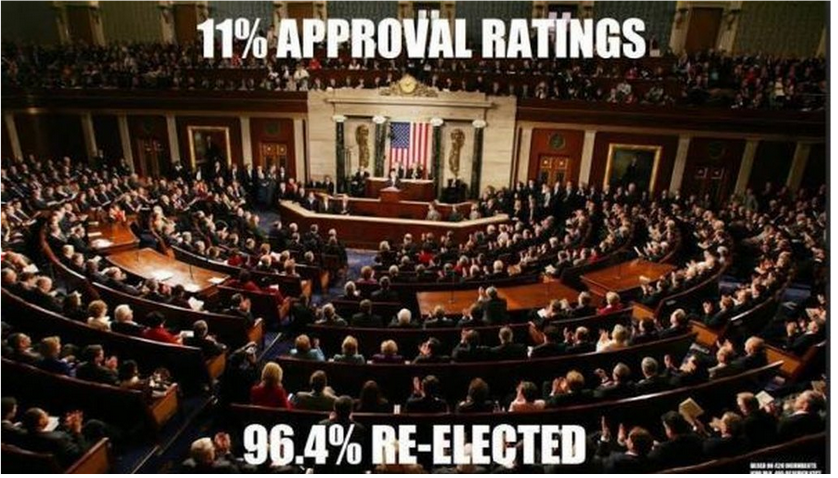this post was submitted on 31 May 2024
567 points (96.9% liked)
US Authoritarianism
830 readers
127 users here now
Hello, I am researching American crimes against humanity. . This space so far has been most strongly for memes, and that's fine.
There's other groups and you are welcome to add to them. USAuthoritarianism Linktree
See Also, my website. USAuthoritarianism.com be advised at time of writing it is basically just a donate link
Cool People: [email protected]
founded 8 months ago
MODERATORS
you are viewing a single comment's thread
view the rest of the comments
view the rest of the comments

Seventy percent of races in 2020 were unopposed. It isn't even two party for the most part.
https://organizations.ballotready.org/research/nothing-to-lose-uncontested-races-in-2020-and-their-implications
So US citizens have no say in picking the legislative, the judiciary and the executive branches.
How's it the democratic beacon of freedom again?
You could run yourself in the cases where a candidate is unopposed. People there have the right to vote, to run as a candidate etc. I guess they could have some sort of law to force participation but I think that would be counter to idea of freedom instead of helping it.
What are the barriers of entry into the running?
I think this https://www.fec.gov/help-candidates-and-committees/filing-reports/registering-candidate/
5k is a decent barrier to stop masses of people running, but surely some people can afford the cost.
I'm just trying to understand the unopposed elections.
There are people who can afford the cost of running, but then also consider they are paying money to do what is effectively a full time job of campaigning, let alone then committing to a 2-6 year (depending) term.
Whatever job they had to make the money to run they'd likely have to quit.
Imagine a job that required people to pay to apply.
You can see how the system is designed to be a barrier to poor and unrepresented people.
So otherwise people rely on the tools and resources consoldiated under the two major parties. And those cases they are never in any position to make demands on the system: they have to follow the party line that funded and supported their campaign.
Just poor people. You can be a black trans woman who is also disabled and a lesbian but if you can put up the fee you can run. And if you were poor enough for the fee to be a meaningful barrier, the $174k/year you make if elected is more than you were making from your old job, and so long as you save a bit of that gives you enough of a cushion to find a new one afterward (plus being a former senator opens more career doors for you).
That $174k is for some major federal offices.
Your state level legislators are pulling like $40k. Those are going to be the bulk of your uncontested races.
Some positions are outright uncompensated but the official has a daily stipend of $50-$150 they can be reimbursed for their spending while on official business, so like: gas and food.
Usually you don't finance your own campaign. You ask around for donations in concentric circles of difficulty. You should read Run for Something by Amanda Litman it's all about how and why you should run for office.
Some can afford it offhand but I'd imagine others gather it from community of supporters